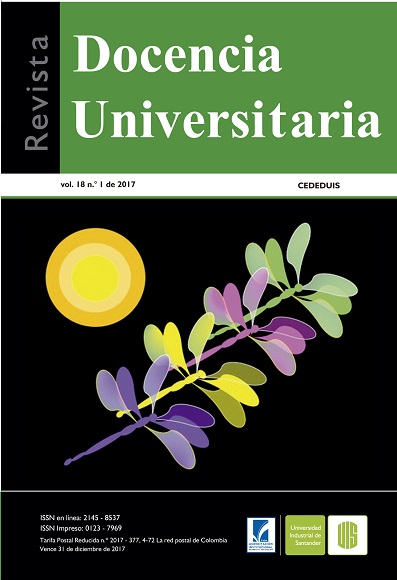Evaluation of the impact of the postgraduate program of Degree in Primary Education of the University of Matanzas
Published 2017-06-30
Keywords
- methodology,
- evaluation,
- training courses,
- teaching professional performance,
- impact on educational institutions
How to Cite
Abstract
The impact evaluation of the postgraduate courses offered by the Higher Education Centers is a current need to measure and assess their relevance and quality. This article presents a methodology to evaluate the impact of the postgraduate courses of the Faculties of Pedagogical Sciences. The methodology consists of six steps: organization of the process of evaluation, execution and compilation of information, preparation of the final report and conclusions of the evaluation, socialization and dissemination of results obtained and projection perspective. The dimensions professional pedagogical performance and impact in educational institutions were determined with their respective indicators. For the theoretical validity of the methodology the Delphy method was used. In the application of the methodology, qualitative research was used. The research instruments to be used revolved around three types of different sources of information: oral, visual and documentary. The data obtained reflect the qualitative changes in the professional performance of graduates, the growth of educational institutions and the main weaknesses in the projection of postgraduate courses and its generalization in educational institutions.
Downloads
References
Aedo, C. (2005). Evaluación de impacto. Recuperado el 14 de febrero de 2017 de http://www.cepal.orgpublicacionesxm17245571cl2442e. pdf
Barreras, F. (22 de abril de 2004). Los resultados de investigación en el área educacional. Conferencia presentada en el centro de estudios socioeducativos “Manuel Valdés Rodríguez de la UCP “Juan Marinello Vidaurreta”. Matanzas, Matanzas, Cuba: En soporte digital.
Cruz, V. (2014). Tendencias del posgrado en Iberoamérica. Recuperado el 12 de abril de 2017, de http:// www.auip. orgimagesstoriesDATOSpublicacionesOnLineTendencias_ Posgrado_Iberoamerica_Víctor_ Cruz_2014-pdf.
Cuba. (2014). Patrón de calidad para la evaluación institucional. Ministerio de Educación Superior. La Habana, Cuba: MES.
De Armas, N., y Valle, A. (2011). Resultados Científicos en la investigación Educativa. La Habana: Pueblo y Educación.
Gertler, P., Martínez, S., Premand, P., Rawlings, L., Vermeersch, C. (2011). La evaluación de impacto en la práctica. Recuperado el 24 de febrero de 2017 de http://www.worldbank.org/ieinpractice.
González, L. E. (2005). El impacto del proceso de evaluación y acreditación de las universidades en América Latina. Recuperado el 12 de marzo de 2017 de https://www.uned.ac.cr/academica/ images/igesca/materiales/12.pdf
Lazo Machado, J.; de la Cruz Capote B. (2014). El Sistema de Evaluación y Acreditación de Carreras Universitarias (SEA-CU) socialmente responsable: gestor de la ciencia universitaria como fuerza social productiva. Revista Estrategia y Gestión Universitaria. Vol. 2, n.° 2, pp. 41-54
Morles, V. (2005). Educación de posgrado o educación avanzada en Venezuela ¿Para qué? Revista Investigación y posgrado, 20 (2), 35-61 Recuperado el 3 de marzo de 2017 de http://www.redalyc. org/articulo.oa
Rosental, M.; Ludin, P. (1973). Diccionario Filosófico. La Habana: Editora Política.
Sánchez, M. (2007) Modelo Integral de Evaluación del Posgrado Nacional. Recuperado el 25 de febrero de 2017 de http://www. comepo.org.mx/images/pdf/Modelo.pdf
Valverde, O. (2015). Repensar la formación posgraduada hoy: Tendencias, cambios y retos en la universidad. Revista Pedagogía y Educación, 2 (1), 41-65 Recuperado el 12 de enero de 2017 de http://www.umariana.edu.co/ojs-editorial/index.php/fedumar/ article/view/821.

